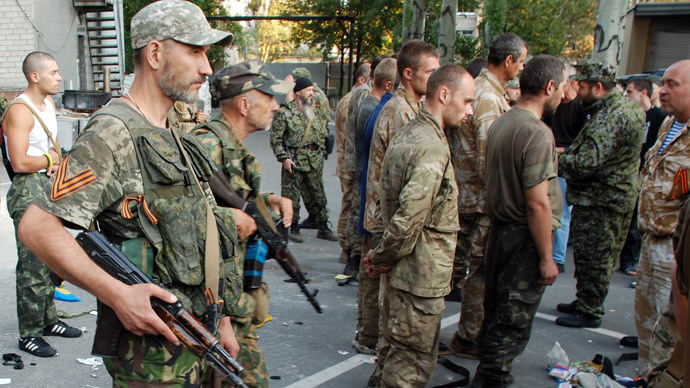The Ukrainian parliament has approved laws on special status for the Donetsk and Lugansk Regions, as well as amnesty for those participating in the hostilities.
The special status law has received 277 ‘yes’ votes from a total of 450 MPs, while the amnesty law was approved by 287 parliamentary members. The session of the Verkhovna Rada is underway during which MPs are to ratify an agreement with the EU.
The law on the special status of Lugansk and Donetsk Regions guarantees the right to use and study Russian or any other language in Ukraine.
It also states that local elections are to take place in the regions on December 7.
The head of the self-proclaimed Lugansk People’s Republic, Igor Plotnitsky, earlier welcomed the law on special status for Ukraine’s eastern regions proposed by President Poroshenko.
“The law on the special status of Donbass generally reflects the priorities we voiced at the September 1 negotiations. That’s why, even though a lot remains unclear, we may say that a peaceful solution has received its first chance of being implemented,” Plotnitsky told RIA Novosti.
Minsk protocol: Ukraine to be decentralized, special status for Lugansk, Donetsk
The PM of the self-proclaimed Donetsk People’s Republic Aleksandr Zakharchenko has reacted to the news of the law being passed by saying it should first be signed by President Poroshenko, RIA Novosti reports.
“First let Poroshenko sign it, let it be published and come into force. Then we’ll translate it into Russian, read it and give an assessment,” Zakharchenko said.
The law on ‘Prevention of prosecution and punishment of participants of events in the Donetsk and Lugansk Regions’ offers amnesty to those anti-government fighters who release all prisoners, hand in all weapons and vacate all occupied government buildings within a month following the law’s enactment.
The laws have been part of a peace roadmap negotiated by
Poroshenko and representatives of the self-proclaimed republics
of Donetsk and Lugansk. The roadmap also included an agreement to
a ceasefire, which came into force September 5.
The truce has been barely holding with numerous reports on
violations and both the troops and the anti-government fighters
blaming each other for sporadic shootings.
Another part of the peace plan – a prisoner exchange – has been
gradually implemented.

